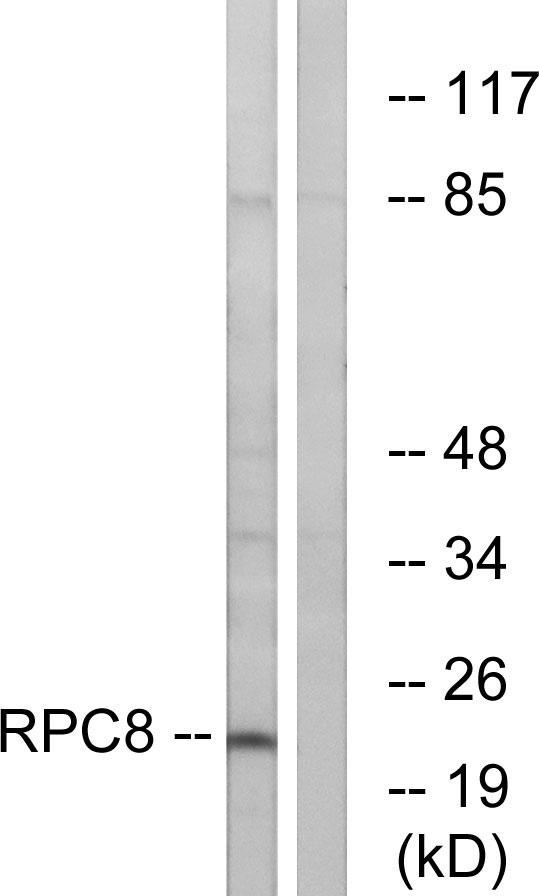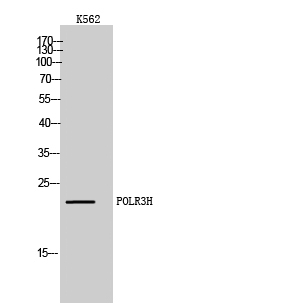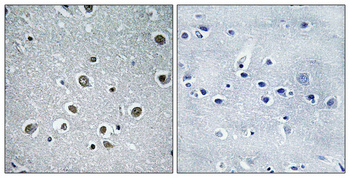产品名称
POLR3H Rabbit Polyclonal Antibody
别名
POLR3H; KIAA1665; RPC8; DNA-directed RNA polymerase III subunit RPC8; RNA polymerase III subunit C8; DNA-directed RNA polymerase III subunit H; RNA polymerase III subunit 22.9 kDa subunit; RPC22.9
蛋白名称
DNA-directed RNA polymerase III subunit RPC8
存储缓冲液
Liquid in PBS containing 50% glycerol, 0.5% BSA and 0.02% New type preservative N.
Human Gene Link
http://www.ncbi.nlm.nih.gov/sites/entrez?db=gene&term=171568
Human Swissprot No.
Q9Y535
Human Swissprot Link
http://www.uniprot.org/uniprotkb/Q9Y535/entry
Mouse Gene Link
http://www.ncbi.nlm.nih.gov/sites/entrez?db=gene&term=78929
Mouse Swissprot No.
Q9D2C6
Mouse Swissprot Link
http://www.uniprot.org/uniprot/Q9D2C6
免疫原
The antiserum was produced against synthesized peptide derived from human RPC8. AA range:151-200
特异性
POLR3H Polyclonal Antibody detects endogenous levels of POLR3H protein.
宿主
Polyclonal, Rabbit,IgG
背景介绍
function:DNA-dependent RNA polymerase catalyzes the transcription of DNA into RNA using the four ribonucleoside triphosphates as substrates. Specific peripheric component of RNA polymerase III which synthesizes small RNAs, such as 5S rRNA and tRNAs.,similarity:Belongs to the eukaryotic RPB7/RPC8 RNA polymerase subunit family.,subunit:Component of the RNA polymerase III (Pol III) complex consisting of 17 subunits (By similarity). Interacts with CRCP/RPC9. POLR3H/RPC8 and CRCP/RPC9 probably form a Pol III subcomplex.,
组织表达
Adrenal gland,Brain,Pituitary,
信号通路
Purine metabolism;Pyrimidine metabolism;RNA polymerase;Cytosolic DNA-sensing pathway;
功能
function:DNA-dependent RNA polymerase catalyzes the transcription of DNA into RNA using the four ribonucleoside triphosphates as substrates. Specific peripheric component of RNA polymerase III which synthesizes small RNAs, such as 5S rRNA and tRNAs.,similarity:Belongs to the eukaryotic RPB7/RPC8 RNA polymerase subunit family.,subunit:Component of the RNA polymerase III (Pol III) complex consisting of 17 subunits (By similarity). Interacts with CRCP/RPC9. POLR3H/RPC8 and CRCP/RPC9 probably form a Pol III subcomplex.,
纯化
The antibody was affinity-purified from rabbit antiserum by affinity-chromatography using epitope-specific immunogen.



